A blog for The Prince of Egypt. Hye mee. adoptee. Jewish. 30s. queer. she/they Older PoE analyses, fic, edits, etc., are tagged #my stuff. Works from Mar 2018–Nov 2019 are tagged #new stuff. I have many feelings about the biological family and write about PoE from an adoptee's perspective. Reunion/adoption focused posts are filed under #poe analysis, while an index of all my writing can be found here.
Don't wanna be here? Send us removal request.
Text
it's an archive, loves
This blog is an archive of all my PoE thoughts, analyses, personal journey of discovery, documentation of my trauma and recovery (true, though ;;;).
I'll be fiddling around with various things, but I am for all intents and purposes no longer here.
Oh: thisonetraveler → ahopefuldoubt
0 notes
Text
A Well Scene/Mud Pit Scene Parallel
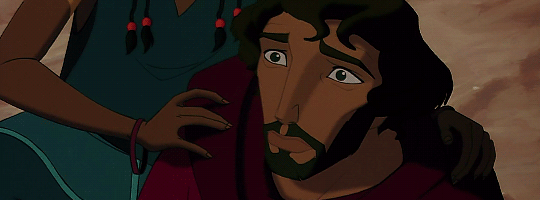
I’ve often thought about what might be going through Moses’ mind in this moment, particularly since the animation intends to show, through his eye movements, that he is actively listening and giving consideration to what Aaron has just said (“So, Moses, how does it feel when you get struck to the ground?”)...
Because if that’s true, and Moses is thinking about the meaning behind Aaron’s words — the emphasis on “you,” and what specifically he’s referring to — then Moses must be consciously realizing or understanding that it’s this:
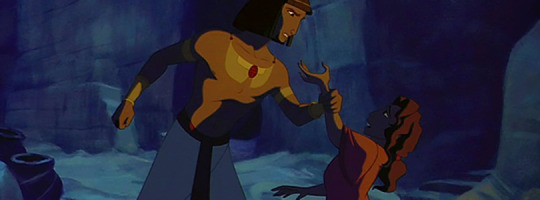
I feel that establishing this connection, and having it play out so subtly in Moses’ eyes, is important because the mud pit scene parallels but also reverses or redresses the well scene in a number of key ways. For example, Miriam drops to the ground of her own volition instead of being forced there by Moses, and Aaron demands to be heard from a place of higher ground instead of having to plead for mercy in the dirt in front of Moses. (The angles in this scene have always been among my favorites, but that’s a post for another day.)
So, there needs to be several links between the two sequences. Despite the fact that the siblings themselves are not yet fully in sync, certain aspects of their dialogue and actions are working in tandem to call back to the well scene (even just internally, within the mud pit scene, Aaron’s and Miriam’s lines about Gd work as a question-answer), and simultaneously help give the story forward momentum. Indeed, the different threads of their conversation seem to address the past and present simultaneously, to be about more than one thing, which is exactly how people talk. And what I do love is how Aaron’s initial confrontation actually reopens, reintroduces, what happened years ago on that night, putting it in Moses’ mind, so that he can apologize. Miriam’s appearance before Moses and then her dropping to the ground further, visually and emotionally, evoke those events from the well scene, and Moses’ apology speaks right to what he did to her and what he didn’t do (listen to/believe her).
#the prince of egypt#miriam#aaron#moses#animation#parallels#new stuff#my writing#not me just casually publishing things i wrote many moons ago#and seeing if anyone notices#but yeah still not back
48 notes
·
View notes
Text
Miriam, Aaron, and Moses and Jewish Quotes
For Miriam
"Pray as if everything depended on G-d. Act as if everything depended on you." - Rabbi Ferdinand Isserman
I’ve never really been someone who prays. Those spiritual muscles never got a lot of exercise. Until a few years ago, I would have dismissed prayer. “Thoughts and prayers” is often all talk and no action, for example. And I valued action over the “emptiness” of prayer.
But I’ve since learned about how Rabbi Abraham Joshua Heschel said he “prayed with his feet” during the Civil Rights Movement; actions toward justice are themselves prayer. I’ve been able to rethink prayer while attending synagogue. Now I tend to think of prayer, and Gd, as something that can provide strength: to survive, to do, to act. Praying still doesn’t come naturally to me, but I feel as though I understand it more.
When I came across this quote by Rabbi Isserman (at least a year before I even started converting), I thought of Miriam, who embodies both utterly. She prays, believes that Gd is active in the world, and she also takes action; she doesn’t wait. Prayer and faith give her energy, that powerful tie to life and hope.
For Aaron
This is an hour of change. Within it we stand uncertain on the border of light. Shall we draw back or cross over? Where shall our hearts turn? Shall we draw back, my brother, my sister, or cross over? This is the hour of change, and within it, we stand quietly on the border of light. What lies before us? Shall we draw back, my brother, my sister, or cross over? - Leah Goldberg (as adapted in Mishkan T’filah, the Reform movement’s siddur)
It was during my first ever Kabbalat Shabbat service as a prospective conversion student that I heard this piece. Even though the poem appears on the page adjacent to the Ma’ariv Aravim evening prayer in the siddur (so, thematically it’s being associated with the Creation part of the service, rather than the Redemption), I couldn’t help but link it to Aaron right away, to the moment where, in The Prince of Egypt, he steps toward the parted sea.
It’s so easy for me to imagine these words overlaying that scene. Aaron is such a force of change and redemption and courage, personifying the recovery of hope and faith. In this moment, he is calling not only to his brother and sister to move forward, cross over, with him, but to all of the People of Israel.
I cited this poem in the last personal reflection paper I wrote for my conversion. It will always speak to the anticipation, the anxiety, the power, the journey, of a transition. I feel it deep in my heart. The way it asks, “Will you take the leap?”
The poem also reminds me a lot of Parashat Lech L’cha, the Torah portion named for Gd’s opening call to “go forth” (or “go to yourself,” which offers other powerful interpretations). There’s that linguistic connection, too: In the text Avram is called an Ivri (Hebrew), a word whose root means “cross over.”
For Moses
It is not your duty to complete the work, but neither are you free to desist from it. - Pirkei Avot 2:21
Commentary says, “Do not be discouraged at the magnitude of what remains to be accomplished: Gd does not expect one individual to complete it alone. Man is required only to do as much as his abilities allow.” “The task” is often daunting. The task given to Moses is daunting. Even Tzipporah tells him that he’s just one man. However, Moses has never gone through life alone; it’s clear that he’s not alone. And this is advice that applies to everyone.
One of the more frustrating, yet oh-so-human, things about Moses is that he almost does desist from the task. I’m not talking about the way he protests at the burning bush. Rather, it’s that he runs away and “[hides] in the desert” for at least ten years (according to The Prince of Egypt‘s timeline). My frustration regarding this has always been over whether he would have just stayed in Midian indefinitely, quiet and content, never wishing to return to Egypt, out of fear of facing murder charges, of confronting his own shame, or from a belief that he can’t change the slaves’ lives. My sense is that he probably would have stayed there, had Gd not lit a burning bush under him. These fears and sense of inertia are understandable (who hasn’t struggled with these things?), but hiding is what this line from Pirkei Avot warns against. Moses isn’t free from his responsibility to do what’s right. He’s not free, no one is free, to look away while knowing that people are suffering. This is one of the most powerful lessons Moses learns, and he does learn it, especially in The Prince of Egypt film.
Last edited: 10/17/21
#the prince of egypt#long post#miriam#aaron#moses#new stuff#my writing#jewish tag#mishnah#talmud#sup tumbles#i'll explain later
13 notes
·
View notes
Text
at last
Original text replaced on February 28, 2021.
I never(?) really said good-bye, so here it is. There have been maybe one or two times within the past year where I felt some half-serious tug to post again, but that feeling always vanished once I logged in.
It is time to move on. I deeply enjoyed writing about The Prince of Egypt, and still do, frankly. Thank you, all. L’Shalom.
6 notes
·
View notes
Text
The Prince of Egypt MBTI Profiles
Finally done! From a 2018 draft; notes and MBTI learning from 2016-2020.
Miriam: ENFJ (Fe-Ni-Se-Ti)
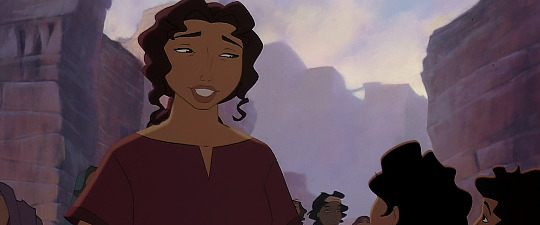
Judging functional axis: Extraverted Feeling/Introverted Thinking Fe-Ti
Miriam is a warm-hearted advocate; insightful, inspiring, and active. She wants to effect (and see others effect) positive change in the world. Forthcoming with her opinions and emotions, at times she can be a bit forceful with them, sometimes rolling over others, or not immediately considering their perspectives or feelings, in an effort to get her point across or get things done (Fe-Ti dynamic; can come across as an “I know best” kind of attitude, which to be fair Miriam pretty much does) — one example of this is the well scene with Moses.
As a function, Fe is focused on the external world and making people-factored decisions and judgments: Fe dominants especially are concerned with what others should and shouldn’t be doing and with promoting cooperation (the higher any function is in someone’s stack, the more natural influence and use — “dominance“ — it has). At various points in the film, Miriam becomes disapproving and stern with Moses and Aaron, the latter when he’s confronting Moses with his critical outburst (“Aaron. You shame yourself.”). This is perhaps a demonstration of Fe-Ti taking-a-stand and/or inferior Ti: Miriam swiftly taking Aaron to task for his doubting, disharmonizing words against Moses, overlooking their value/validity and his viewpoint. With Moses, as shown in both the well and mud pit scenes, she knows what his role is, encouraging and reminding him to act within it, connecting his responsibility to their people, and affirming his tie to them.
Miriam tends to speak in ways that appeal to human connections and welfare, as evinced by the sensitive speech she gives to Moses, in which she expresses the pain of her experience as a slave, and recounts Gd’s presence in his/their lives. She tends to put others’ needs before her own, at the same time knowing how to defend herself and to trust her judgment, is loving and reassuring, and can rally people together through low and lofty times.
Perceiving functional axis: Introverted Intuition/Extraverted Sensing Ni-Se
When Moses returns to Egypt, Miriam seems to just know why he’s come back (knew he would come back, even), perhaps also from taking in his robes and other aspects of his physical appearance. It’s comparable to when Moses first shows up in Goshen years before: She sees the broader implications of his homecoming, why he must be here at last. Her sight is forward-reaching and personally meaningful; a specific goal that she's determined and focused on, grounded by both her faith and observations of the world around her. She knows how things should/could be, how she wants them to be, and takes actions in the present to make those things a reality.
Miriam believes in others’ — particularly Moses’ — potential (“And you are, Moses. You are the deliverer.”), which is a further reflection of her Ni. Though able to reconcile and adapt to changes when they occur (Ni-Se being adjacent functions in an ENFJ), it is nonetheless indicative of an Ni-Se dynamic that Miriam becomes stressed during the well scene when current reality and facts — that Moses wasn’t told who he is and hasn’t returned to help them obtain freedom — don’t match up with her beliefs/ideals or the underlying truth. She understandably protests this unexpected change, and can’t/won’t let go of what she has put her hopes in, and been fortified by, for so long. She doesn’t actually let go, but I think it does make her want to fight for these hopes more… and, in this scene and others, push Moses to achieve his promise.
Aaron: ISFJ (Si-Fe-Ti-Ne)
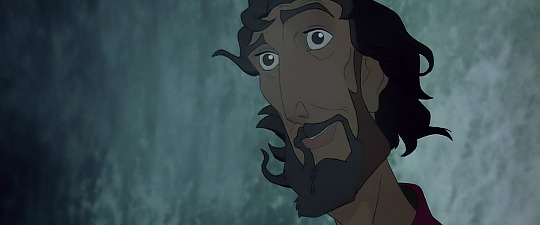
Perceiving functional axis: Introverted Sensing/Extraverted Intuition Si-Ne
Aaron is practical, reliable, protective of family and others; trusting of personal experience and wary of what is new or uncertain. Because these two naturally opposing functions, Si and Ne, are also located on opposite ends of an ISFJ’s stack, resolving the tension between them is more difficult, and this is true for Aaron, whose own journey involves overcoming his fear and becoming more open to trust and faith, stepping out of his comfort zone.
Aaron tends to make concrete, habitually self-sacrificing, gestures and actions. He cares about others and their physical safety; it is Miriam he most clearly looks after, but this includes Tzipporah, Moses, and the Hebrew community (a camel, too). While Miriam is often the sibling on the front lines, and, after resisting the call at first, Moses eventually comes to accept his position as a leader, Aaron plays a more supportive role, and is the one whom the other two can count on in times of need.
When Moses returns to Egypt, Aaron immediately calls attention to how Moses behaved in the past, believing and perhaps also fearing that his younger brother hasn’t changed. Si-doms reference meaningful past details to understand the present, noticing consistencies and inconsistencies. It’s telling that Aaron hasn’t let go of events from years ago, and that he draws a comparison between what happened and what is happening: the way Moses treated Miriam, and that he didn’t care about slaves.
His inferior Ne manifests in his fearful, cautious attitude towards things that seem to him unfamiliar or unrealistic (such as Miriam’s beliefs about Moses), and in his inclination to expect all possible negative outcomes, which are based in his (objectively negative) known, prior experiences. One example is the well scene, but also the Nile to blood scene where Aaron despairs, rather realistically, that Pharaoh still has the power over their lives. (I’ve thought about whether he’s in an Ne-grip, or even a Ti-loop, for most of the film.) However, once he starts to experience with his own senses that freedom is attainable, tangible, he starts to trust these changes, challenging his established security and his courage by walking into the parted waters of the Red Sea.
Judging functional axis: Extraverted Feeling/Introverted Thinking Fe-Ti
While more reserved and even-tempered than Miriam, Aaron in general does not withhold how he feels, expressing his opinions, fears, anger, affection, joy. He is mindful of his and his people’s position within Egyptian-dominated society (certainly dominant Si-related too), to the point of affirming his, Miriam’s, and Moses’ roles when Moses appears in Goshen — an attempt to mitigate their very tense interaction with perhaps a bit too accommodating desire for group harmony. Aaron makes decisions based on values and how people relate to one another. For example, during the same scene his plea to Moses is an emotional one; as in, Aaron is calling to Moses’ mercy, trying to reach with Miriam’s appearance of illness some compassionate part of this threatening prince.
Aaron makes a similar, albeit angrier, appeal to Moses during the mud pit scene, this time rousing, whether he knows it or not, Moses’ sense of guilt and morality, and asking when Moses started caring about slaves. (I’ve always felt like there’s a resemblance between Aaron’s and Miriam’s scolding/“shaming” styles.) While still speaking to concerns that affect people, Aaron is able to form analytical conclusions, checking logic and what “makes sense” (other illustrations: “In fact, Moses, when did you start caring about slaves?”, and, “But, Moses, didn’t you see what happened? …”). He uses his Fe-Ti to assert himself during the mud pit scene, a kind of “sounding off” that shows that he’s reached the point where he won’t be silent any longer (it doesn’t help that he’s had to sit on these emotions for years).
Moses: ISFP (Fi-Se-Ni-Te)
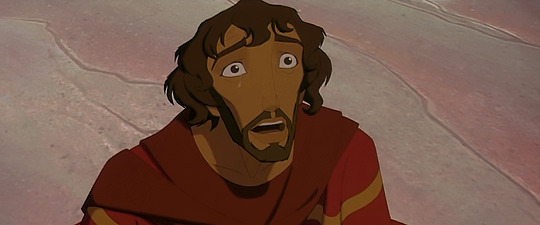
Judging functional axis: Introverted Feeling/Extraverted Thinking Fi-Te
Sensitive and just, impulsive and good-natured, Moses typically acts and reflects upon a deep and personal(ized) sense of values, of “right and wrong.” He defends Rameses by taking responsibility for their mischief; he knows to feel remorse after he’s mistreated Tzipporah at the banquet. When Moses finds out the truth about his origins, he is appalled by Seti’s use of infanticide. With Tuya he asks, “Is this where you found me?”, again calling attention to the wrongness he feels. And of course, he takes a stand against oppression. Like Miriam and Aaron, Moses factors how people relate to one another into his decisions (all three siblings are Feelers, though Miriam and Aaron use Fe, not Fi).
Furthermore, Moses tends to share his strong feelings more privately; his one-to-one interactions with Rameses suggest this. Not only does “All I Ever Wanted” act as a mustering of personal conviction, “this is who/what I am,” it’s also Moses’ inner monologue wherein and whereafter he sits and processes his emotions on his own.
Moses is quick to internalize blame when things go wrong, which of course anyone can do, but in Moses’ case this points to (especially dominant) Fi’s concern with upholding its integrity. Part of his running away from Egypt is spurred on by these blows to his sense of self/self-worth and morality. (He’s troubled by his own ignorance and identity upheaval.) Under the guidance of Jethro and his people, Moses rediscovers and redefines his values, learning to see himself objectively — “Through Heaven’s Eyes” — as well as the dignity of every life. His encounter with Gd and conversations with Tzipporah and Rameses allow him to reckon with the fact that he truly must “learn to join the dance” and cannot remove himself from the world nor neglect doing what he knows is right. It’s in his later confrontations with Rameses that he’s able to step up and express his values and wishes in a firm, organized way.
Perceiving functional axis: Extraverted Sensing/Introverted Intuition Se-Ni
As a teenager, Moses is a reckless seeker of sensory experiences, pursuing enjoyment in the here-and-now and competition alongside Rameses (“Oh, come on. Where’s your sense of fun?”). He follows Tzipporah out of intrigue — as well as a desire to make amends. His humiliating Tzipporah can be seen as not thinking about the impact of his whims. Even so, a healthier auxiliary Se shows in how he’s able to see the facts about himself and admit mistakes, in his adaptability, and, with maturity, in his unimpetuous playfulness. As an adult, Moses remains someone who doesn’t much hesitate when he encounters something new: For example, he isn’t entirely cautious when he catches the flickering light of the burning bush, though one can argue that he’s also drawn there spiritually. Another instance: He’s happy to be hands-on in Midian, minus the dancing at first.
Although Moses’ tertiary Ni surfaces in his ability to grasp the potentials that people and situations hold (“I know [Rameses] will live up to your expectations. He only needs the opportunity.”), Moses’ sense of direction and of greater purpose are shaken after he becomes unsure of what good/worth he can contribute to the world. He “loses” himself in the present, to a free and joyful life in Midian. However, he regains his drive and sight of the larger picture, with the help of all the figures in his life — Jethro and Tzipporah, Gd, Miriam and Aaron, and Rameses — committing to the task given to him.
Last edited: 6/8/20
#the prince of egypt#miriam#aaron#moses#mbti#new stuff#my writing#oh hi i'm not back#just finishing what i started#did my best with these#one of the reasons this took 4 years was bc i kept harping on all the details#(mud pit scene you hurt so good)#editing this has been a good distraction tho#would totes write 5000 more words for each sibling#but i want to move on too#i think mbti is interesting and helpful but it's also not my only guide
64 notes
·
View notes
Photo

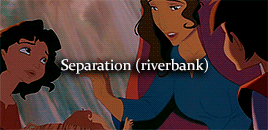



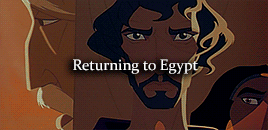
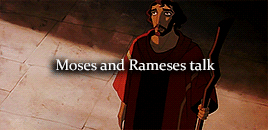
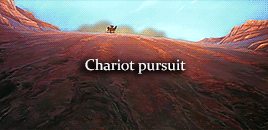

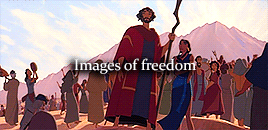
o CHIASTIC STRUCTURE o A narrative device in which words, ideas, story elements, etc., are repeated in reverse order, in the same or a modified form; also called ring structure since it often creates a complete circle. This device is commonly found in ancient literature such as the Hebrew Bible.
Bonus: the center or turning point of the chiastic structure (God appears before Moses)

#the prince of egypt#chiastic structure#ring structure#my stuff#my gifs#1k#from 23january2018#yeah me queue
12K notes
·
View notes
Photo
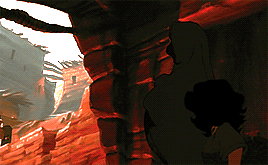
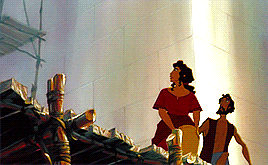

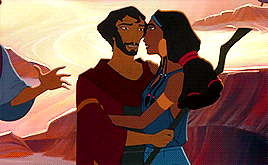
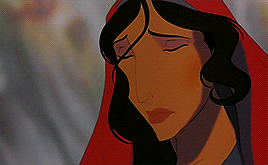
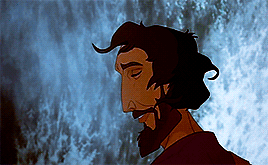
Yocheved & Aaron parallels/connections
#the prince of egypt#yocheved#aaron#parallels#my stuff#my gifs#beautiful yocheved#hope is hard to kill#from 17jan2018#yeah me queue#i love them so much
2K notes
·
View notes
Photo
Damn, I can’t edit the OP because it’s on my old/defunct blog, but my full Hebrew name is Aharonah mi beit Rut.

I choose life and hope, and the parted sea that brings me home
I choose my people I am a Jew, from now and forever and I will always choose
—Aharonah bat Avraham v’Sarah—
139 notes
·
View notes
Note
Could you kindly write about Aaron's compassion, please?
Yes!
I feel that Aaron’s acts and expressions of compassion include:
His love for Miriam, the way he protects her; his not wanting to see her hurt — and there’s that tenderness in his eyes when he looks at her
Forgiving Moses — I think it’s informative of Aaron’s character, that he’s not obstinate or uncompromising; he has bitter feelings towards his brother, and is able to change, reconsider those feelings, and embrace him
Trying to hold Tzipporah back when she darts for Moses on the Nile — it’s an unwelcome action (from Tzipporah’s perspective), but for Aaron (what it says about him), it’s an impulse born from years of fear and worry and protecting Miriam, from seeing the pain Egypt’s guards are capable of inflicting on others and experiencing it himself
Comforting and commiserating with the weary, frightened/awed camel that drops its head on his shoulder
Helping an old woman climb to the shore of the Red Sea, as Rameses’ army is bearing down on them
Stepping towards the parted sea — an act that gives encouragement, not only to Moses, who sees the people’s hesitation, but to the people themselves, whose doubt Aaron understands so well and in whom he is now going to help foster a sense of belief.
I’d like to mention Aaron’s dialogue as well, particularly the lines that contain “we/us/our” (and it’s most of them).
“There’s nothing we can do.” (also written about here)
“Was it when you found out that you were one of us?”
“Pharaoh still has the power over our lives.”
Now, contextually, his responses work more naturally as “we/us/our” statements. Aaron isn’t going to say something like, “Pharaoh still has the power over my life.” Though true, it wouldn’t make sense here. Beyond that, though, and speaking more to the point of the question, I think the first-person plural matters — It’s the effect they seem to have: what they reveal about Aaron (and his role in the film), and about his sensitivity, rather than indifference, to the suffering of his people, as well as his shared feelings and identity with them.
Last edited: 12/1/19; I originally started to write this reply as a more analytical and perhaps metatextual piece about why Aaron is perceived as not being compassionate. However, I decided to go with the above list, nixing the meta stuff and approaching things from the view that Aaron is compassionate and here are some examples that I think ought to be considered. Truth be told, this way felt more emotionally satisfying, and even though I’m well aware that Aaron always gets compared unfavorably to his siblings (see aforementioned analytical/meta piece), I didn’t feel like bringing up Miriam’s compassion or Moses’ [journey to learning] compassion — I felt no need to compare or qualify.
#the prince of egypt#aaron#hope is hard to kill#new stuff#my writing#ask#steppenshe-wolf#it's been months since you sent this ask sorry for the delay!
19 notes
·
View notes
Photo
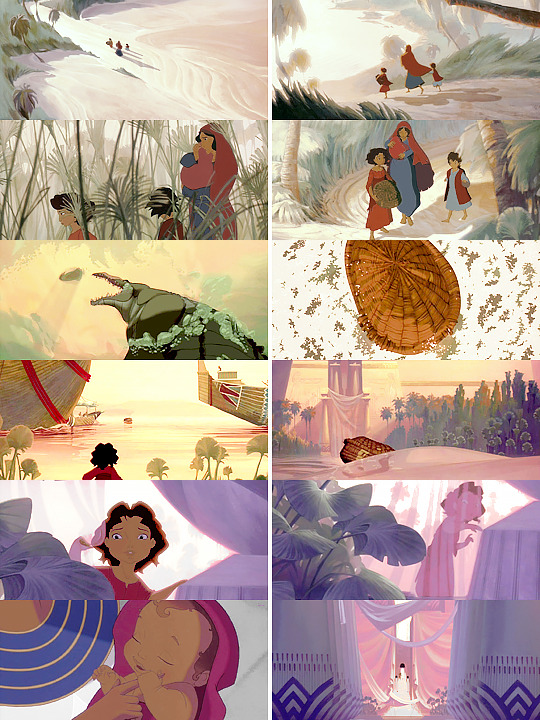
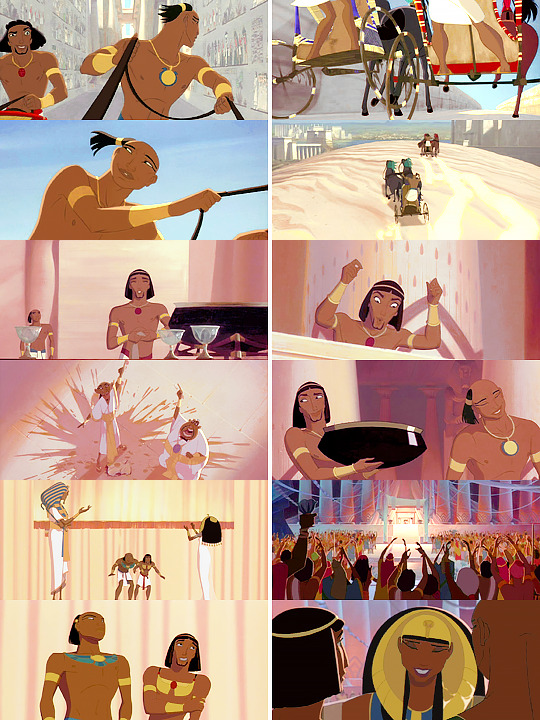
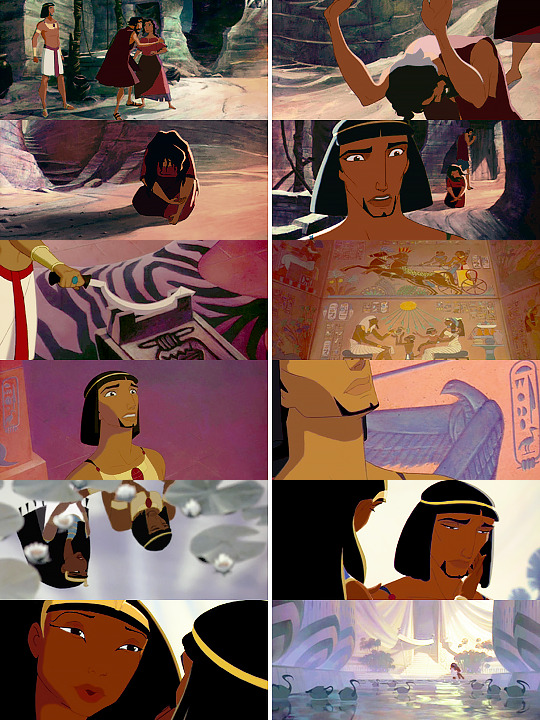
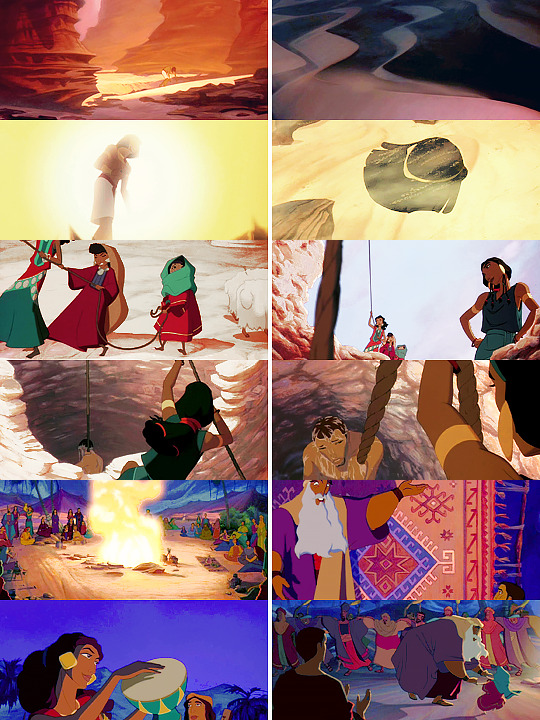
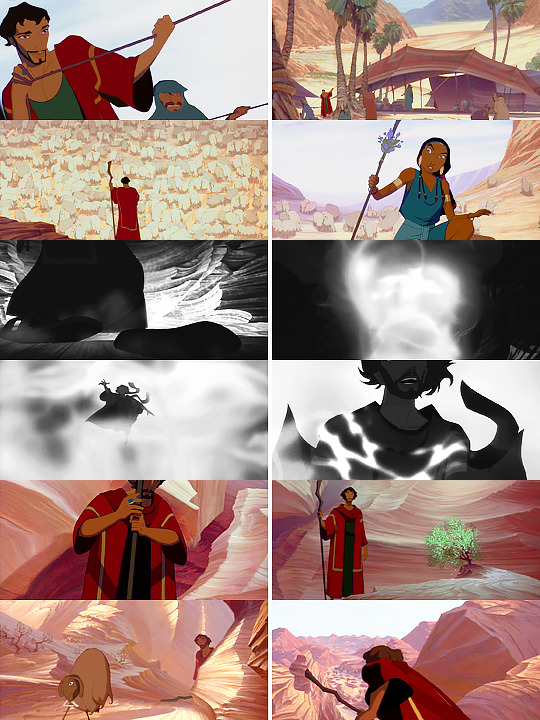
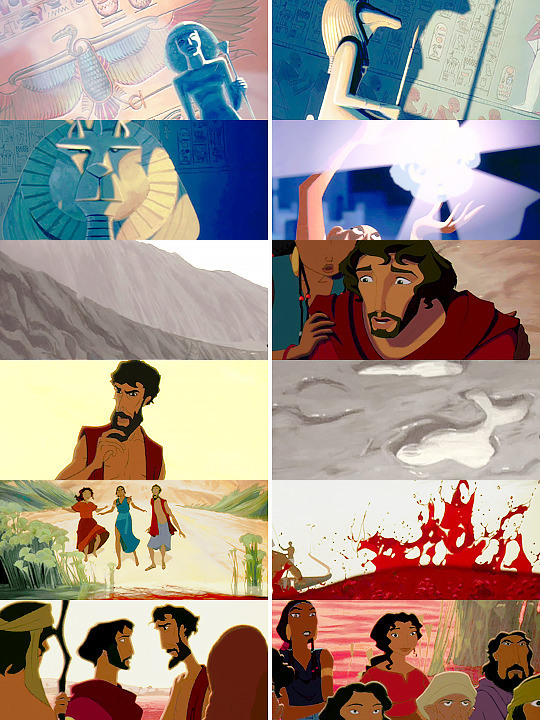
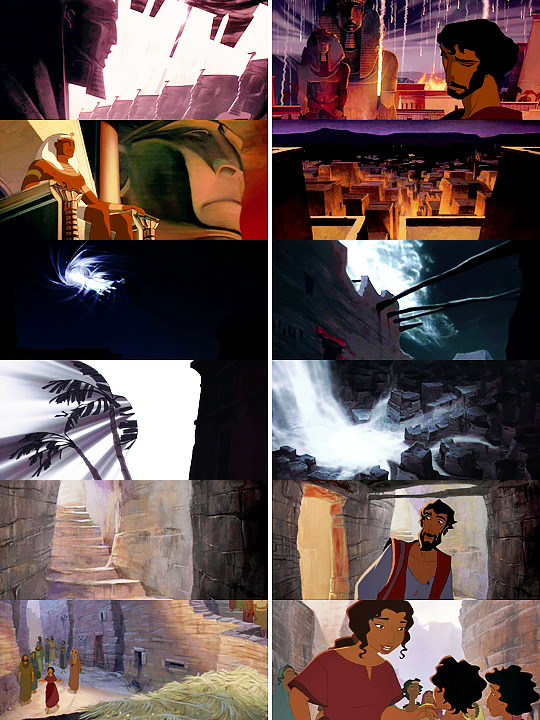
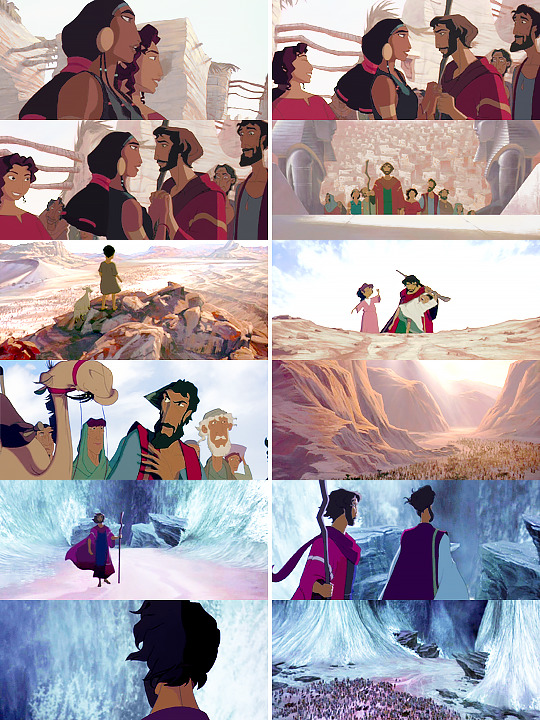

The Prince of Egypt scenes
Edits from May 2016 to January 2017 — which is why they’re a bit inconsistent in terms of style and coloring. I all but lost these along with my original blog, so I decided to put them (well, roughly half of them) together in one post.
#this is incredibly dashboard unfriendly sorry#the prince of egypt#long post#new stuff#poe scenes#the inconsistencies bother me but... ah well...
72 notes
·
View notes
Photo

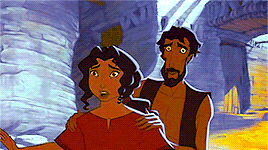
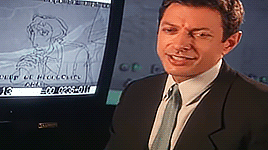
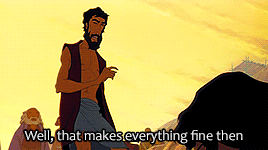
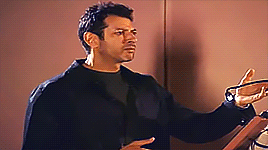
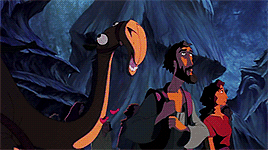
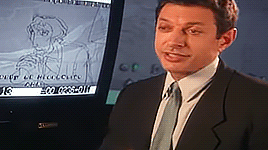
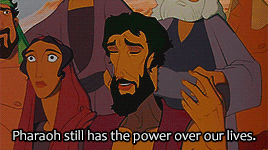
“I can recognize my voice and myself in Aaron, but it’s also a fun leap of characterization.”
#somehowyouwill#nondisneyedit#animationedit#the prince of egypt#jeff goldblum#aaron#hope is hard to kill#new stuff#my gifs#well this only took me 3 years to finally make#i've thought about that leap of#characterization more than any rational person ought to
156 notes
·
View notes
Text
We remember
Moses has complicated feelings about his mothers. It hurts to think about Tuya, and it hurts to think about Yocheved. It hurts to call them both mother and feel like neither of them is fully his to claim. It hurts to have lost them both. It hurts to think about one more than the other, to think about them at the same time, to feel like his feelings betray them both.
—
Sometimes Moses can’t help but think about Yocheved, and when he looks at Miriam and Aaron, he attempts to construct their mother’s face, her build, her gait. Sometimes he voices his ideas out loud. She was tall, she had Miriam’s eyes.
He turns thoughtful when Miriam, brushing a thumb across his cheekbone, tells him, “You share your eyes with our mother — the same shape.”
“But she was tall.” The corner of Aaron’s mouth lifts. “...Well, I wasn’t, though. Not then.” A small, clumsy smile. “She always seemed tall to me.”
Edited. Added note: PLEASE DO NOT REBLOG.
19 notes
·
View notes
Text
Someday: Aaron (a Prince of Egypt fic)
takes place after the scene at the well. aaron’s pov. based on a headcanon of mine that this was also aaron’s first time hearing his mother’s lullaby since moses was relinquished. companion to this piece. originally posted in 2016.
That song.
Aaron could hear the soul-rending cries of women and babies, the harsh shouts of Pharaoh’s soldiers. He felt his mother’s fingers running through his hair, saw her kneeling in the river’s muddy water.
He could hear his mother’s voice.
He had stood on the shore, holding his sister’s hand as they watched the current carry the small basket away.
That song.
Tonight it was his sister who sang it.
Tonight, a prince of Egypt who pulled away from them.
Perhaps there was a time when Aaron believed in their deliverance, back when he was a child and his mother and sister made hope feel real and his world safe. But over the years, as whips replaced wonder and people left more than they stayed, he found himself countering his sister’s fervent someday’s with yeah but when’s.
He simply stared when the prince appeared this evening. The prince-not-prince. Brother-not-brother. His pulse had quickened. Then threats formed against her and he blocked out all other thoughts. He threw his own body between them, bowed his head. Right. A prince. More than not.
The prince ran, leaving them behind. Aaron moved to his sister’s side. She was gazing into the gathering darkness. As if trying to call the prince back using the strength of her convictions. Seeing her there, her hair undone and cheeks streaked with tears, Aaron felt the ground might give way beneath him.
Then his palms met fabric and he felt her shift almost imperceptibly under the sudden touch, and he banished the thought of ghosts from his mind, scolding himself for thinking foolishly. She at least was there, real.
Still, he kept his hands on her shoulders as he helped her onto her feet and into the house.
Sitting with her at the table, he searched her face, wanting to say something — a million somethings. But words and emotions tumbled and bumped past each other. He felt tension build between his brows. He noticed her watching him then, a trace of a tease making the corners of her eyes crinkle slightly, as she reached across to soothe the worry lines on his face.
Her expression was gentle, clear.
Someday.
He closed his eyes. That song echoed in his heart.
35 notes
·
View notes
Note
How dare you speak about adoption that way. You're a disgrace as a social worker. There's nothing racist about foster care or international adoption. I've adopted two kids international from Ethiopia and two kids from foster care. My kids would've died if it weren't for adoption. My daughter came to me with 4 broken bones from foster care as a baby. My son was born addicted to drugs. He's now happy, healthy, and on target for his age. You're very unprofessional.
this could be the beginning of a journey to becoming a better person, a better parent, and a better global citizen. you have a choice to make. i choose to have a higher standard for the ethics of adoption than “children do not die.” children deserve better than that.
you saved your children’s lives. now choose a higher standard, and save their worth, dignity, and heritage. the brutal, unethical history and present of international adoption is as much a part of their heritage as their nationality and race, doubly so, because it is intimately tied to their nationality and race. you are willingly closing your eyes to a huge part of your childrens’ experiences because it hurts your pride and forces an uncomfortable change in your worldview and view of yourself. you asked – well, actually, didn’t ask, they didn’t have a choice – your children to do that for a lifetime when you adopted them. it will not destroy you to do it, too. it has not destroyed them
you can be better. if you want to. if this piece of your children matters to you. saving a life does not make you not racist. the two things have nothing to do with one another. saving a life makes you a person who saved a life. it will cure nothing within you. if you want to stop there, you can. i hope you want to do more. you pledged once that you would do more than save a life when you committed yourself to these children. within that pledge, you can choose to learn how a good deed can still be a racist deed.
there needs to be people downstream picking up the children who float by, half drowned. but there also needs to be people upstream finding out why the children are falling in and trying to stop their suffering from ever occurring.
you can be a better person, mother, and global citizen if you become as concerned with stopping suffering from ever occurring as you are with saving those who have already suffered. it will be hard. but your children deserve more than being grateful for their lives. they deserve better than what you have written above. they are not protective armor that will protect you from your flaws or knowledge of how and why they suffered. you must protect them. and you must start by protecting them from your low expectations and pride.
2K notes
·
View notes
Text
(This has been sitting in my drafts for months.)
Oh I love this. I will discuss and go to bat for PoE’s interpretation and characterization of Aaron ‘til I’m hoarse. @runrundoyourstuff thank you --- I enjoyed our back-and-forth and love your commentary and insights!, and I hope you don’t mind my highlighting just a couple of sections of what you wrote.
In the Bible, I think the transition that Aaron makes is from being a representative of and subservient to the will of the People (embodied, perhaps, in the Golden Calf incident in the Book of Exodus–recall that Aaron does that at the request of the People) to being a representative of and subservient to G-d for the People (as embodied in this episode with his reaction to Nadav and Avihu.)
YES. And oh wow --- like I said above, this thread is several months old, but immediately after reading what you wrote here I started thinking and rethinking the Golden Calf episode (I think I said as much in our chat a while back). So, thank you! I have new thoughts and interpretations now.
And I also think in some ways, PoE does depict this subtly, in having Aaron grow from someone who gives voice to the People’s anger and pain and fear and disgust–vented at Moses–to one who inspires them, and who models G-d’s will for them, by being the first to walk into the sea.
Gosh, I couldn’t agree more. ♥
When I see folks express disappointment over the way Aaron is depicted in PoE, I understand where they’re coming from. However, I really do feel that PoE does a great job with him --- especially from the whole “speaker for/voice of the people” perspective. His role in PoE is still very much a spokesperson. Maybe he’s not Moses’ spokesperson (though I do think he acts as Moses’ conscience during the mud pit scene)... but he’s the people’s spokesperson.
Anonymous had asked: How do you think TPOE Aaron would react to Moses telling him he’s going to be High Priest?
*Aaron voice* Moses, uh, what do you mean?
—
In all seriousness, this is a great question! especially considering the differences between the source material and The Prince of Egypt. I’m actually a little nervous* about answering, but I’ll give it a try because it’s something I’ve thought about before, and it’s related to topics that I nerd over in general.
I do infer (I’m not sure if I can call it a headcanon) that PoE Aaron becomes High Priest. One of the things I find so powerful about Aaron and his arc is that he recovers his hope and faith — faith in a religious sense and as a sense of trust/certainty. The message that something shaken or lost can be found again works beautifully to support the overall story, but it’s really uplifting to see it happen at a character level. That being said, I feel that Aaron is in a place at the end of the movie where he would be more open to the role of High Priest, and more willing to reach out to it, when it came to him (through Moses, at God’s instruction).
…with some reservations, since he’s still Aaron. Though this isn’t a perfect comparison, even Moses protests when he meets God and is told he’s the chosen deliverer of his people; he doubts his suitableness and whether they will listen to a former prince of Egypt. The reason I bring this up is because, in the film, Moses and Aaron are alike at least in the regard that they’re not above voicing their grievances, which is a similarity I appreciate, to be honest (I like Moses’ casual “it’s too early for this” gripe, heh). I definitely imagine Aaron reacting along these lines. He’d object, and probably wonder about all the things that could go wrong (including whether he’ll do a credible job). —Oh, this is also a chance for the brothers to bond, and solidify their partnership: “Don’t worry, Aaron. You’ll do well.”
So, for me, PoE Aaron’s becoming a priest is a matter of when, rather than if, and I think his reaction would be one of… cautious agreement? — Really, a combination of the journey he takes in the movie and his typical (skeptical) outlook on life, which I don’t believe he’d lose completely. Personally, I might also explore how he would then grow into this role. My next fic is going to be The (Mis)adventures of Aaron the High Priest. (I’m kind of half-writing it, in this post?) However, those are deeper waters, and I already feel a bit out of my element… :x (I’ll just continue to think about it on my own…)
*Note: I fell down several old and new rabbit holes, both out of genuine interest in the subject(s) and a desire to review/learn some cultural and religious context before writing. I didn’t make as many direct (or even indirect) references to the source material as I thought I would, but still, I hope I didn’t make any offensive mistakes.
Also, in the Book of Exodus, God tells Moses that, for the High Priest (Aaron), “you shall make the robe of the ephod of pure blue” (28:31). I haven’t seen/read confirmation of this, but there’s a part of me that would like to think that Aaron’s clothing in the movie (the color, not the style) is an homage.
Last edited: 4/22/17 (Question and reply are originally from 2017.)
#hope is hard to kill#aaron#torah#i know this doesn't really add anything but i wanted to say something nonetheless
32 notes
·
View notes
Text
i can’t believe i’m done over here.
peace. that’s what i have now, what i lacked two years, even one year, ago. some measure of peace.
i’m about to cry though. done cried. like a sigh has left my body. i can rest now.
it’s been a... i don’t even know what word to use. it’s been a _____ three and a half years. very few people know. to those who do, especially those who have been with me since 2016, to my mutuals and chat partners, friends: thank you so much. (i'll be reaching out.)
g’night g’night.
#*if* i can make a last gif set and text post (analysis) i will#but not for another week#at least#i have off work for sukkot and will have free time then#hyemee.txt
4 notes
·
View notes
Photo

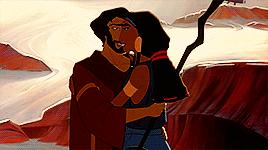




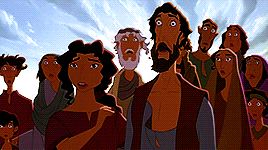

Aaron is a doubter and sort of a spokesman for the slaves, who are fickle. They love Moses, then they’re upset with Moses. Aaron starts out doubtful and upset with him, but when he walks into the bed of the Red Sea, I think he shows that if one person shows he believes, that’s all it takes for the whole thing to work. It’s a nice transformation. — Jeff Goldblum (from The Prince of Egypt: A New Vision in Animation)
8 times I knew that Aaron was the fave
#that arc(tm)#the prince of egypt#aaron#hope is hard to kill#my stuff#my gifs#from 7oct2017#what else can i say about these past 3.5 years?#my life changed (not hyperbole)#i've followed where this has taken me#followed because i needed to#followed because i had questions#followed because i couldn't not follow#followed and found home#not yet my person#but home and my people#thank thank thank and g'night
698 notes
·
View notes